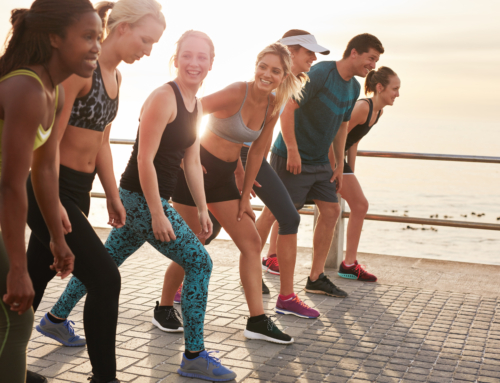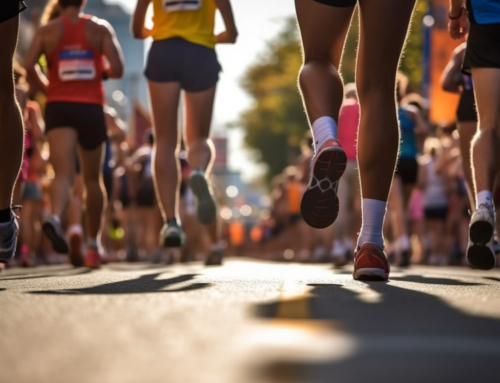Diet & Nutrition Tips for Runners
Diet & Nutrition Tips for Runners
Like any other sport or form of exercise, your running performance and ability is considerably influenced by your diet and nutrition, so it’s crucial that you are taking care of what you eat. Strenuous exercise, such as running or cycling, inevitably makes your muscles work harder than when resting or walking, which is why it’s vital that you keep providing your body with energy in order to keep performing. However, this doesn’t just mean eating more, it means planning a healthy, balanced diet that contains all of the necessary nutrients.
Whether you’re running a marathon, 10k or a virtual challenge, below we’ve provided some of our top nutrition tips and pieces of advice to help you get the most from your training.
What to Eat when Training for Running?
Complex Carbohydrates
Complex carbohydrates are an essential nutrient for runners, particularly those running longer distances. They are stored in your muscles as glycogen, which your body uses when working out, and unlike simple carbs, are a long-lasting source of energy. This helps to prevent your muscles from becoming depleted, enabling them to perform for a longer period of time.
They are also rich in fibre, meaning that they digest much smoother than simple carbohydrates. This results in less bloating, which is ideal for helping runners to perform at optimum performance.
Examples of complex carbohydrates include whole grain breads and pastas, fruit and vegetables (such as potatoes) and dairy products (such as low-fat yogurt and skimmed milk). If you don’t usually incorporate these products into your diet, try substituting what you usually eat for the above – for example, rather than making sandwiches with white bread, use whole grain bread.
Protein
Protein is comprised of amino acids, and is vital for the body. Not only does it help muscles and tendons repair, but it also helps to transport nutrients around the body, maintain hydration, promote blood health and a normal pH, as well as boost your immune system and help with hormone production and tissue repair.
It’s important that you spread your protein intake across your meals so that you keep a steady supply of amino acids to fuel your muscles and organs. Unlike fat and carbohydrates, protein isn’t used for energy production and isn’t stored for later use – meaning that there is a limit as to how much your body can consume at once. As a rule of thumb, protein should consist of between 12-15% of the total calories consumed daily by runners.
Complete sources of protein (those that contain the nine essential amino acids that the body cannot produce naturally) can be found in animal foods, such as meat, fish and eggs, as well as dairy products. Other sources of protein include beans, nuts and lentils.
Fats
Contrary to popular views, fats are an essential aspect of a runner’s diet, however, it’s crucial that you consume the correct type of fats. It’s advised that you eat minimal amounts of trans and saturated fats, as these have been proven to decrease your good cholesterol levels and raise your bad cholesterol levels, which leads to an increased risk of heart disease.
Unsaturated fats are the healthiest type of fats and can help increase your good cholesterol level and also reduce your risk of stress fractures and running-related injuries. However, these are still high in calories, so should be eaten in moderation. You can find unsaturated fats in food like olive oil, avocados, nuts and seeds.
Water
Water consumption is essential for everyone, but it is needed even more by runners to replace the water lost while running. Sweating is the involuntary response that prevents our bodies from overheating and as our bodies are comprised of around 40 – 70% water, even just a slight shift in the body’s fluid balance can heavily impact running performance. We also lose water through breathing and urine/faeces production, so it’s easy to become dehydrated.
However, you shouldn’t just keep hydrated whilst running, water should be consumed evenly throughout the day and you should make sure you’re hydrated before you run – it will help you stay cool for longer during your work out and will help to keep your muscles hydrated.
Vitamins and Minerals
Vitamins and minerals can play an important factor in your performance and endurance. Vitamins can be thought of a catalyst for the body to correctly function, and minerals regulate these functions to ensure they are happening correctly. Ideally these should be obtained from a balanced diet, but it’s not uncommon for athletes to take supplements.
Examples of vitamins and minerals include vitamin B and potassium. Vitamin B helps the body to release energy from food and make nerve and muscle tissue function properly, and a deficiency of potassium leads to poor control of your body’s water balance, resulting in a lack of energy.
Running with Race at your Pace
Here at Race at your Pace, we’re dedicated to promoting a healthy lifestyle. Every month we organise virtual challenges of varying distances for you to participate in, and they’re a great way for people of all ages to keep active. Whether you’re an elite athlete, or you’re just getting into running, we have a challenge for you – sign up today!
See more: What is a Virtual Challenge?



